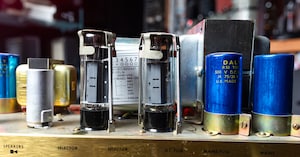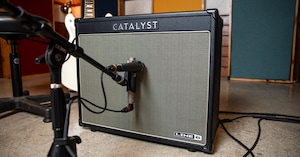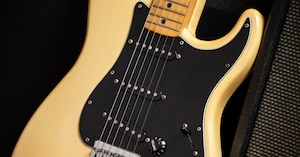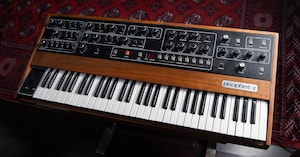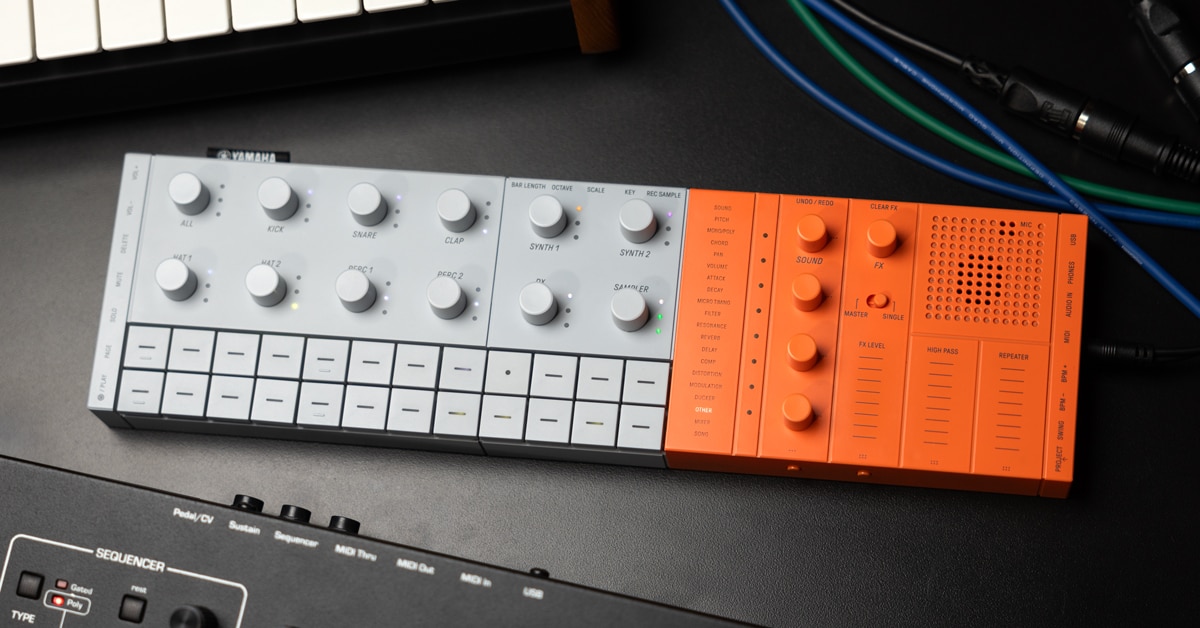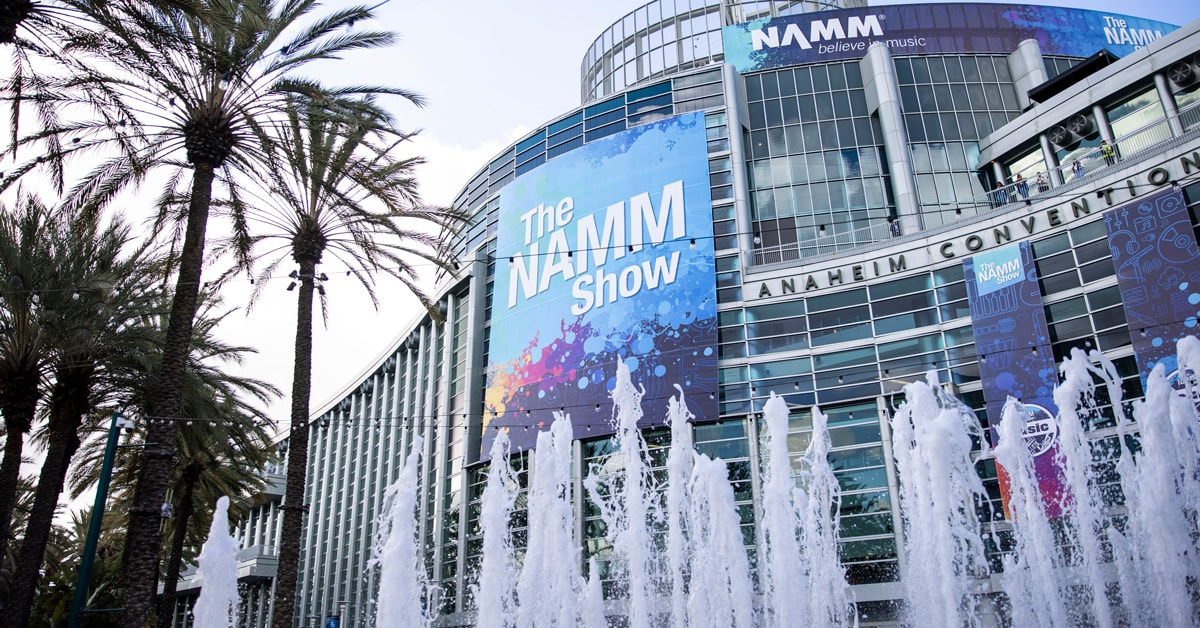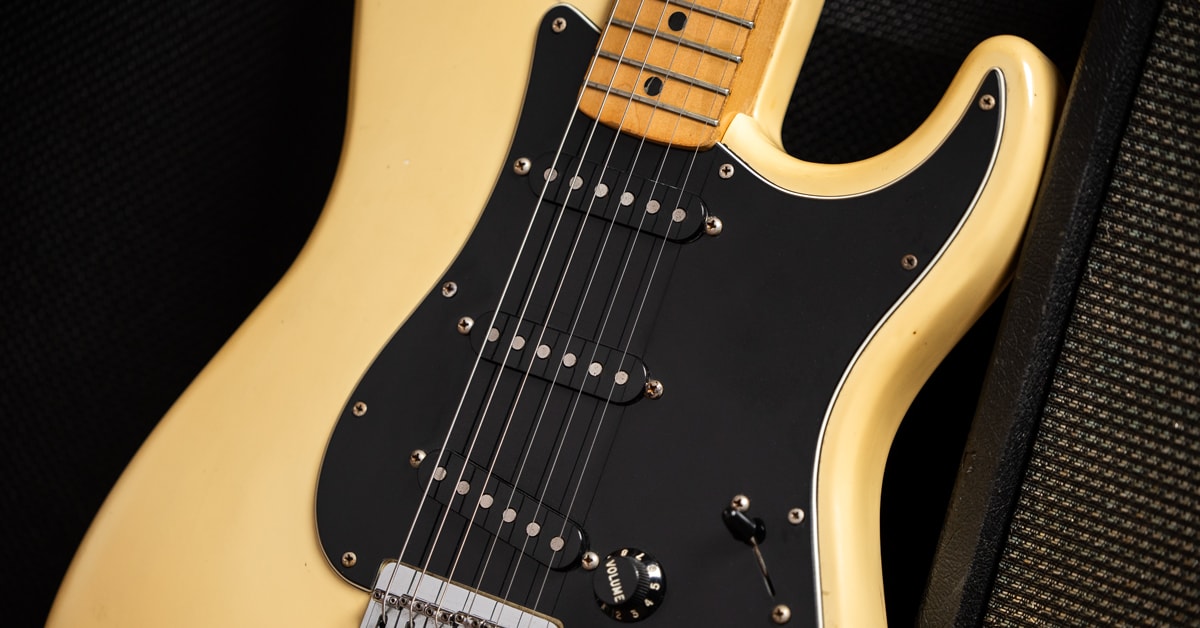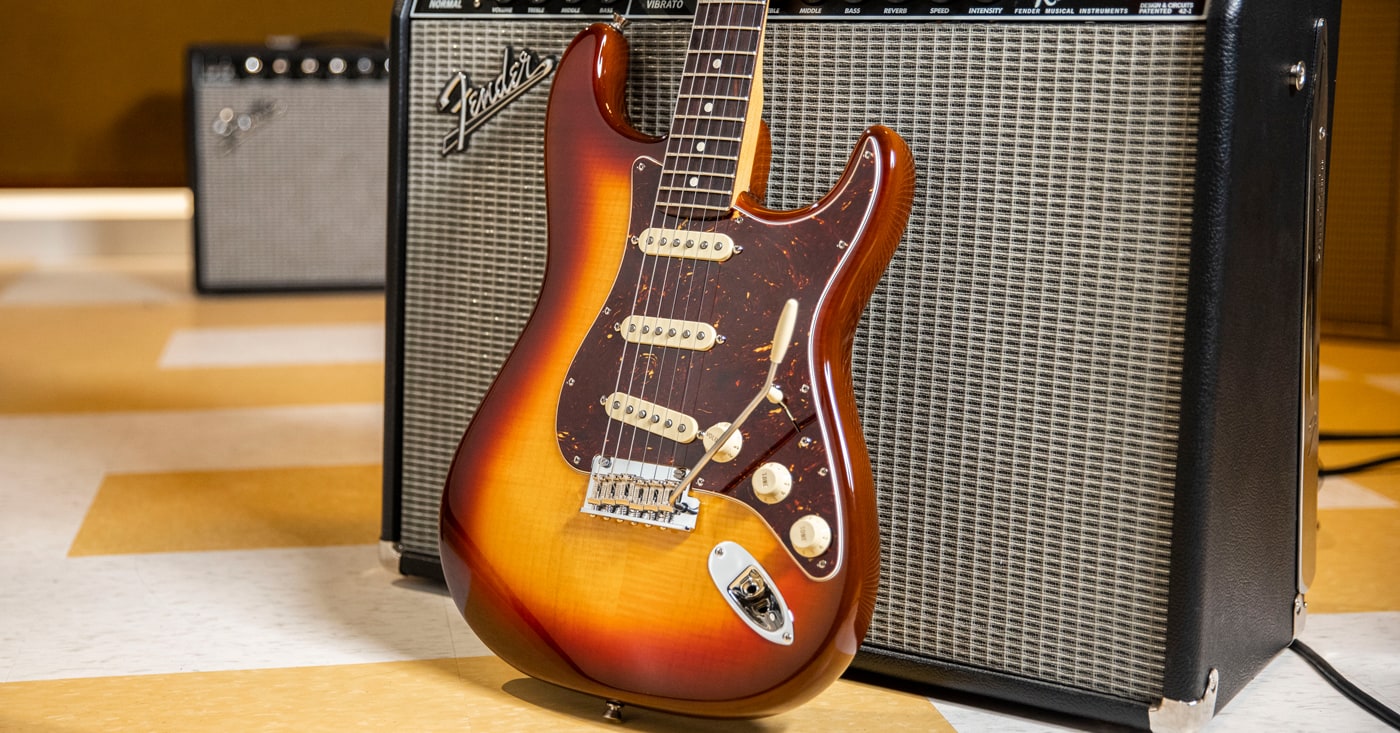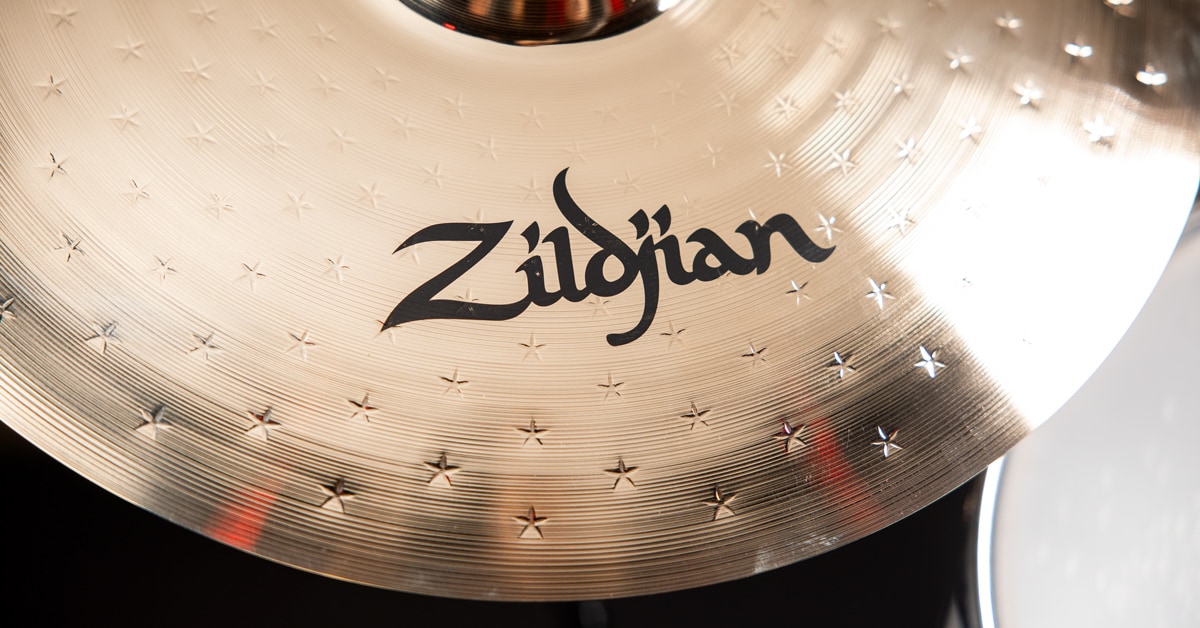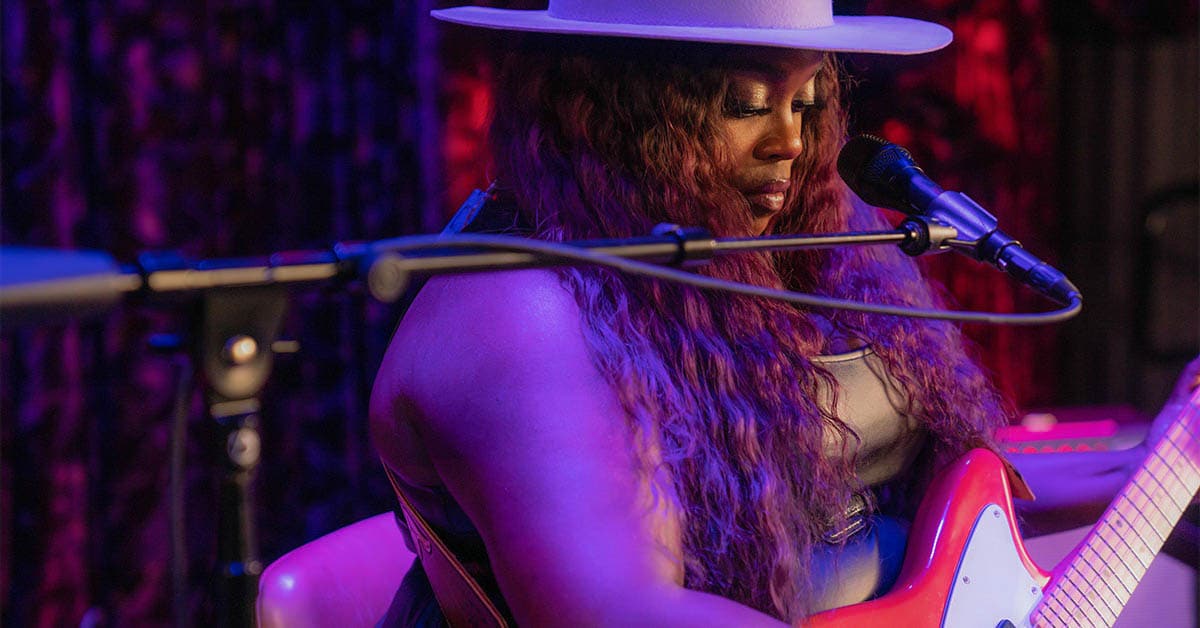"For us to truly connect and empathize, we need to understand ourselves first."
Listen to any track off Yola's sophomore album, Stand For Myself, and you'll hear this sentiment ring true. The artist's “fastidiously genre-fluid” creation is an explorative approach to her self-actualization through music. Defying conventions at every turn, Stand For Myself moves from soul to pop to roots to R&B with incredible ease. For Yola, this approach was vital to getting her message out. “My story is the story of a Black woman, demanding her right to nuance. I want to be considered for my full individual self, and not as a monolith or by the tropes associated with my Blackness.”
Yola's album isn't just a personal labor of love—it's a testament to the spirit of collaboration. By bringing her most authentic self to the table, Yola empowered her hand-picked team to do the same. “The songwriting collaborators were vital in helping me find the words I was looking for,” Yola said. “We had the A-team on this record, and it shows in the music.” In the end, Stand For Myself is a message not just for Yola, but for all of us. “Uniting through music is not merely coming together through shared interest, but it is about using music to unite us in our right to be our true selves and acknowledge the full injustice of the world around us, and what we need to do to change it.”
We sat down with Yola to delve deep into what this album meant for her, and learn more about her process and her development as an artist.
What do you hope people take away from the record?
I hope that when people listen to Stand for Myself, they understand what "stand for myself" is. It isn’t "stand by myself." It isn't about being alone. It isn't about being isolated or being some monolith of robotic strength. It's about standing for your right to nuance, and to nurturing, and to the kinds of love that are more focused on who you actually are, as opposed to adhering to any kind of trope that makes someone else feel comfortable.
The right to nuance and care and kindness and tenderness and all the things that make life really awesome—that's what standing for yourself is. That is the message and explains why the main meat of the album is kind of sentimental. Don't go missing out on that. Don't go missing out on why.
Dan Auerbach produced this record. What does that collaboration mean to you?
The production's outrageous. I make no bones. I'm not going to be faux, kind of like, oh, he's blah-blah-blah. I'm for real. He's an absolutely mind-blowing producer. Can we just lay that on the table? He has great resources. He makes great decisions. That's a really joyful thing to witness when you're tracking because the calls have been made.
Also, I was talking about how important it was that we differed from the first record in the rhythm section. I was like, if this doesn't have feel and pocket, I don't know what we're doing with this record. We spent a lot of time hunting for the right drummer, the right bass player, and made sure that their locking would be something that would be somewhat automatic. I refused to start recording the thing until that was right.
Obviously, we write together too, and his style of being involved can vary from song to song, but he's always adding some eloquent thing. His presence always turns up some form of value. It's been really, really a wonderful thing to work with him, and just that ability to do this and to grow. That's what I need to keep on doing in my life.
You were able to collaborate with many people for this album. What were you looking for when choosing who to collaborate with?
I was looking to meet people in a place. That was what I was looking for. People that were looking to broaden their scope. People that were looking to break out of things that were too small to hold them and to connect. And so while I'm referring to cowriters in this regard, I picked out Joy Oladokun, Ruby Amanfu, obviously notably on many songs; Natalie Hemby, and friends from back home who really helped me bring things to the floor; Hannah Vasanth and a very close friend to help me form how I was feeling about a certain subject; and Aaron Lee Tasjan on “Diamond Studded Shoes,” which spent quite a lot of time camping at the top of the Americana chart. That was a selection of people that I felt comfortable with and that I could talk about things that I wasn't sure I was going to be able to talk about—my politics, and what it's like to feel isolated in that way and othered as a dark-skinned Black woman.
How does that connection, that feeling of comfortability, make your own work better?
When I am writing with people, I feel this connection and this sense of community. Writing's vulnerable. You can't help but feel connected to somebody. Almost equally, playing with people and building a touring band and creating something that you're going to show the world can be one of the most personal things you can do. You have to get an understanding not only of how you want to be presented to the world, but of the little nuances of the way that you interact on the road and how that plays onstage.
Building those things can be the most satisfying moments of your professional life—finding people that you feel are blood. That can make me really feel connected. The more that I can tailor that to reflecting what I see in the world and the environments I want to be in—that they are diverse—the more I feel at home.
Why is important to be around collaborators who allow you to shine?
You need people around you who are not intimidated by your will to grow. “If you grow, then I can't control you, so, now I'm going to try and gaslight you eight ways to Sunday to keep you within your little box so that you can carry on serving me.” I didn’t want to say that out loud, but I did. But that's what can happen when you're the artist. You're there to serve someone else's narrative. It all sounds so basic but you need people who are not going to literally stand in the way.
I have my own paradigm of existence. And, as a dark-skinned Black woman, that becomes really important. People don't understand how you can do something as a Black woman. “How can you love yourself as a freaking dark-skinned Black woman? Why are you so happy? I need to believe you're not happy because you don't subscribe to my paradigm.” I've had that as well—people just shocked, borderline horrified, that I love myself, and that I think I'm all snack-y and delicious.
Let's get into your journey with the guitar. Tell us more about your experience with playing.
My journey with the guitar has been somewhat contentious. My first interactions were out of fear. There were many messages being delivered to me about why I had no right to touch it. It wasn't my place. It wasn't a thing that Black people did, apparently. It wasn't a thing that women did. I was just gaslit and a victim of misogyny of the highest order from people who would never see themselves that way.
It made me codependent as an artist. I had to be part of a team of some kind. Then I realized that this whole process was to keep me in service. This whole mindset was to make sure that I never gained independence, because my skillset was useful, and I needed to be able to remain useful. I realized that I needed to stand on my own two feet. I had to get over the programming that was laid within me to stay away from the guitar, and get to a point where I could pick it up without my hands shaking, and play it in front of anybody without my fingers going to jelly. It took years to do. I finally got there in 2016.
I'd started playing with my dear friend. I had a bunch of ideas, and it transpired that I'd always had the chords in my head and I didn’t know. Some of those turned into songs that are on this record. It was always in there, and so the guitar meant independence. It meant freedom. It meant expression. It meant all of these things that allow you to grow.
How has your exploration of the guitar evolved? What gear do you use?
I'm playing Sister Rosetta Tharpe in a certain Elvis movie, and I had to pick up some soloing skills. I'd never done scales before, never done anything single note before. I've felt the process in vibing her style really made me understand more about the guitar on a foundational level.
I am a Fender artist. I've been playing a whole lot of this Jazzmaster with the P90 pickups. The P90s have got a nice bit of growl to them, and in combination with this pedal, it's not too smooth. So, it's versatile in our ability to make it fit over the more soul-y sounds, but also have a little bit of crunch for when we need to be rocking. I tend to use the bridge and the middle pickup as a mix. I love the neck, the way that it feels. I've also got this custom Telecaster that Fender made for me with the cream binding in pink. I want to put a humbucker in there, kind of like Keith Richards, because I like some of his tones on that neck pickup, and I want to be able to toggle between those two.
I've been buying pedals recently, and I've never done pedals before, guys. It's been really important, the idea of finding your tone. I can have more fun if the tone does something that I need it to do. Then I can play less or I can play with more intention. The JHS Chorus—I'm not using it for the chorus, incidentally. I'm using it for the toggle up function. It gives me a very, very lovely tone. I'm not going to tell you my settings, or I'll have to kill you. I'm playing with a BOSS auto-wah at the moment. [Chase Bliss Audio] Automatone, this fuzz. It's like a little mini mixing desk with flying faders.
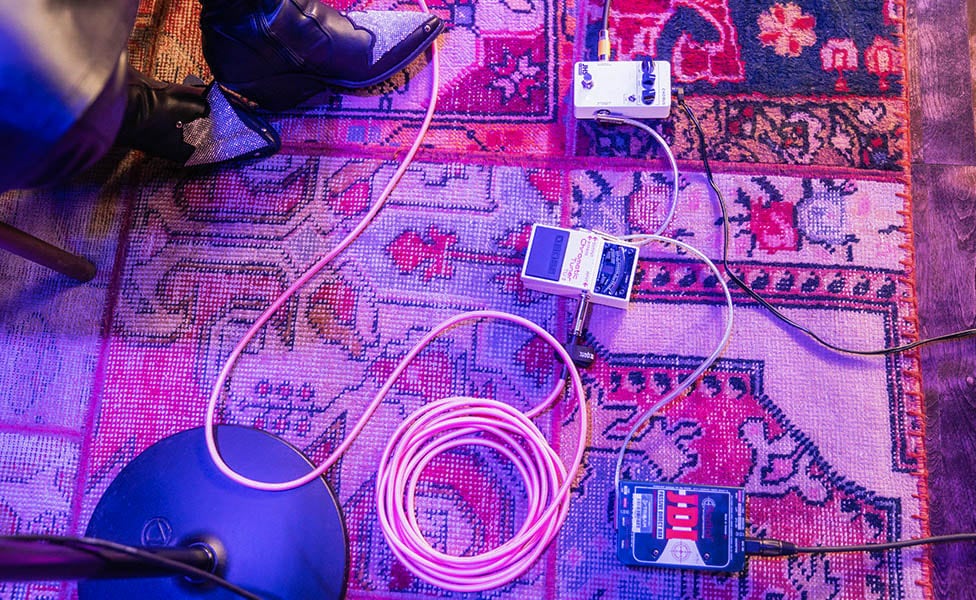
Pivoting to vocals, how did you discover the mics that works for you?
One of the things that I find really important when I'm singing live with the KMS 104 and 105 is that idea of rejection. I've sung with mics before that you need to be right on them to sing, but my voice is one of a delicate choral, soft quality, punching, almost Tina-like belting quality, and I need to be able to be on the mic on one and the heck off the mic on the other. Maximum rejection of all things that aren't right on the diaphragm of the mic is problematic. I need to be able to work with the dynamic in my voice. So that's what I love about these Neumanns. I love the shape, the geometry, the way they shaped my voice. It seems to know exactly how much to take out for it to not be a thing that's cutting peoples' eyeballs in half.
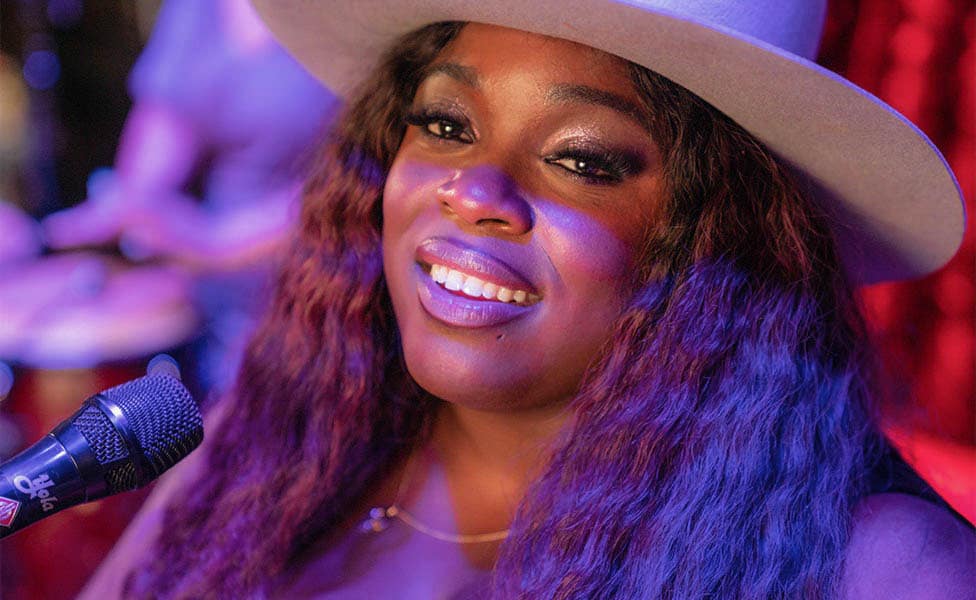
What are your perspectives on vocal technique and training?
There's so much bullshit out there, man. There's not enough scientific stuff out there. There's not enough voice pathology out there. The voice pathology, voice science communities and the singing communities are not in concert, and it's an absolute bloody travesty.
I've got a beef. You've got all the things that people don't understand about the voice that they could if they studied any kind of sports psychology, sports science. They'd understand muscles and how we need to treat them. I don't know what it is about vocals, but it makes people really, really stupid, and it's infuriating. I had bilateral vocal nodules, and I lost my voice for a year and a half, and they said I wouldn’t have my singing voice back ever again. So I decided to stalk voice pathologists, voice osteopaths, respiratory physios, you name it. I read and read and read. I was able to take time to figure out how to fix myself. There's a lot more people on the scene now that are better in understanding the voice and how psychologically, you can do all the right things with the wrong approach and that can affect the voice.
Your emotional state obviously affects your muscles because your brain is the mission control. So, you have to get control of mission control before your body is going to do what you want it to do. You can massage it to within an inch of its life so it's live and loose. You can train everything, but if you're stressed, it'll be returning. Having a comprehensive approach to things, to understanding psychologically how your mind affects your muscles, to understanding the biomechanics of your muscles—I had to go through all of this to get over the absolutely crushing anxiety I had that any one cold or any one situation could potentially end my career once I'd mended myself.
When you're singing different genres or expressing different emotions, how does your vocal technique change?
When I'm moving through genre, I become surprised that the changes you think I would make don't happen. I might be singing in the belting part of my voice for a song like “Break the Bow.” When I say "belting," I mean projecting with the body of my voicing, hitting my mandible on the way out, not resonating on the palates, keeping it low larynx, keeping it low mouth, and shaping more towards an “O” wave than an “E” wave.
In all of that sense of body and delivery, the reason I went there wasn't for a sense of technical ease. Singing a song like that—I had a very difficult relationship with my mother so it's not very harmonious—I needed to use the screaming part of my voice at the crescendo of that song. I needed to release that disappointment of the absence of a functioning mother in the delivery.
In a similar way, I'd sing with that same part of my voice, accessing the top body of notes, in my range in “Diamond Studded Shoes,” which is about political pissed off-ness—swiping the meals out of little kiddy winks' hands by the power of the austerity measures that are happening in England, and being pissed that people are still blind enough to think that poor people are taking their money and not the rich people wearing diamonds all the time, who we pay. That's definitely your money. Little Tommy having an extra meal is not your money, sunshine. It was fiercely personal. I went to the same part of my voice for the same feeling. The technical inspires the emotional, and the emotional inspires the technical.
When we find the connections in music, we find the connections with each other
How do you think music unites us?
I remember writing “Diamond Studded Shoes” with my dear friend, Aaron Lee Tasjan, and we were bonding over the fact that the U.K. and the U.S. were going through some pretty difficult times politically— the antithesis of uniting, if you will, very divisive. We were in these paradigms of divide and conquer. I wish for music to undo the divide and conquer paradigm, but not to then homogenize, to assist whiteness, but to be together in the authenticity of self. I think music has the ability to traverse those kinds of boundaries. I think it can celebrate difference, and that's what I love about music—the way it brings people together as their authentic selves as opposed to some homogenized whole.
Keep up with Yola.
